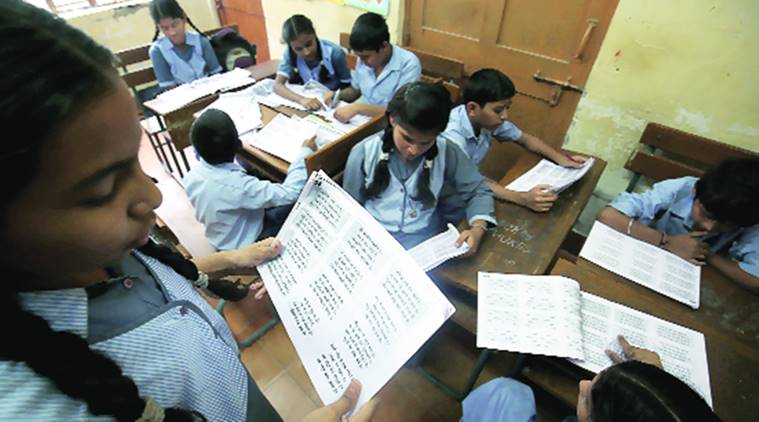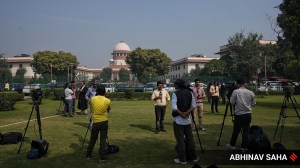- India
- International
Over 1 lakh school students who couldn’t read textbooks can do so now: Delhi government
In July, the Delhi government said that only 44% children from class VI, VII, and VIII were able to read texts of their level.
 Non-readers sat for an extra hour of reading classes per day.
Non-readers sat for an extra hour of reading classes per day.
Over a lakh students enrolled in classes VI, VII, and VIII in Delhi government schools, who could not read text from their books, can now do so, the government said on Friday.
In July, the Delhi government said that only 44% children from class VI, VII, and VIII were able to read texts of their level. After an intervention that started in September, the figure rose to 59%.
The intervention, Chunauti 2018, divided students into groups of ‘readers’ and ‘non-readers’. The ‘non-readers’ had to undertake an extra hour of reading classes, wherein they were taught basic reading skills.
Watch What Else Is making News
The intervention started on September 5 and ended on November 14. The total teaching days utilised, excluding examinations, were 30.
Figures provided by the Delhi government state that the percentage of students who could read only single words or less has reduced by 57%.

The percentage of students who can read at their class level has increased from 44% to 59%. However, data shows that the most substantial increase has been among students who could not even recognise letters when the assessment started.
In class VI, there were over 16,000 students who could not say what a letter was if it pointed out to them. An indicative analysis showed that up to 46% had advanced more than one level in the 30 days of teaching. However, officials, who worked on the project, said they had expected a better response.
“We were expecting better results, but this is encouraging. The biggest change has been in attitude of teachers. Many thought the kids who can’t read can never be taught. This intervention showed them that a sincere effort can make a difference. We will continue with the extra reading classes, along with reading melas,” said Atishi Marlena, an advisor to the education minister.
There are still around 67,000 students who cannot read simple paragraphs. “Our assumption is that many might have learning disabilities.
The next step in the programme is to assess these students and test them for learning disabilities. Our special educators and councellors, who have been appointed in most schools now, will conduct the assessment excercise within the next 10 days, following which a roadmap will be made,” she said.
Sponsored | Empowering Leadership through AI Integration: Catalysing Business Transformation
Apr 26: Latest News
- 01
- 02
- 03
- 04
- 05































